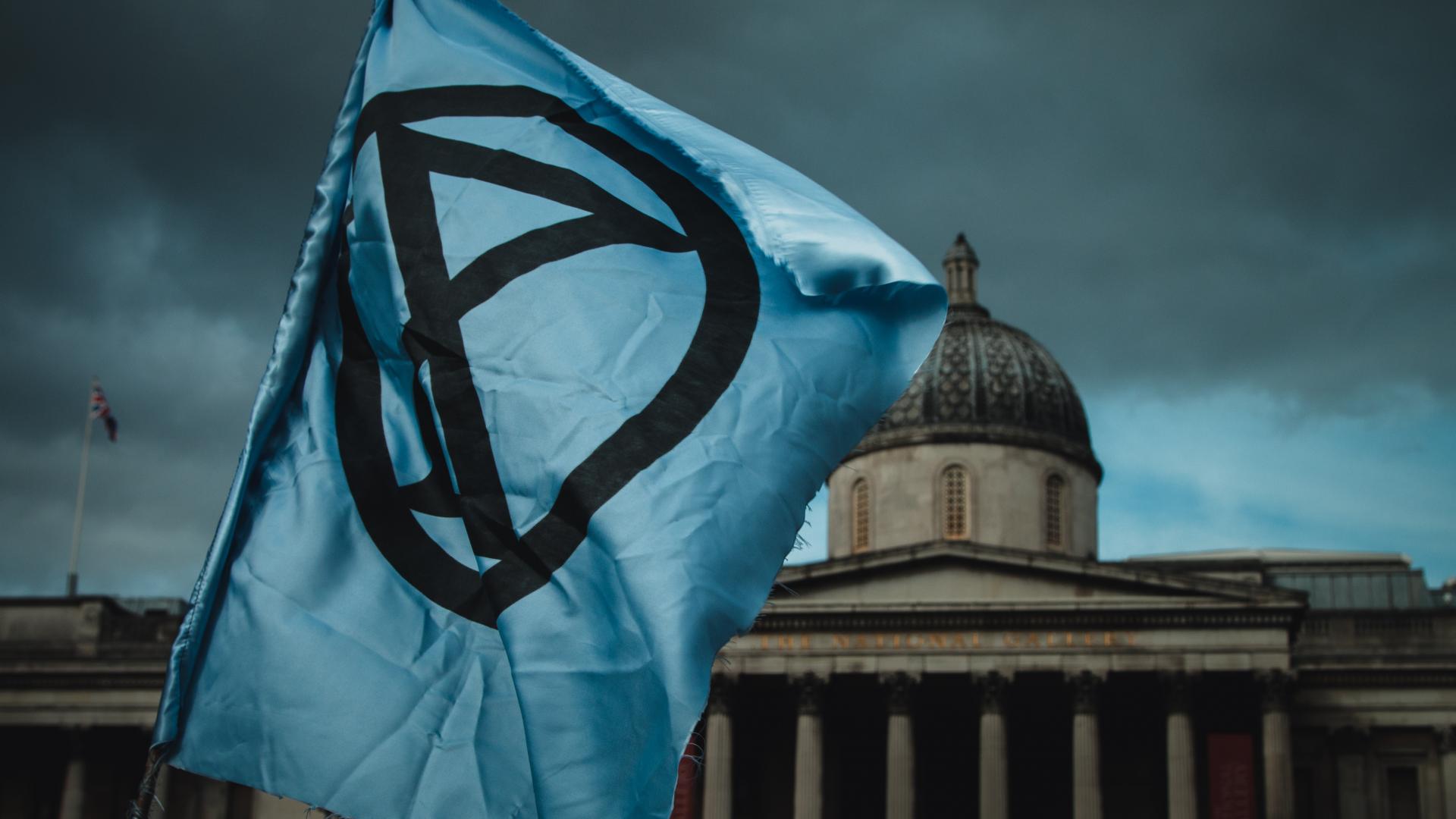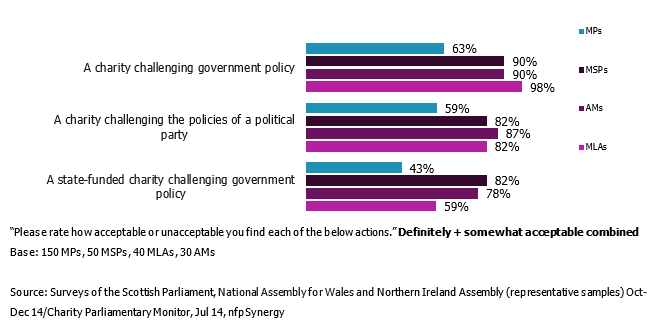Extinction Rebellion (XR) recently found themselves added to South East Counter Terrorism Unit’s list of extremist ideologies that ought to be reported to Prevent, the UK's controversial anti-terrorism programme. The move sees the overtly non-violent group occupying the same space as jihadist and neo-Nazi groups. Greenpeace, PETA and other such non-violent environmental organisations’ logos were also added to a separate counter terrorism guide – a document which also shows National Action and Combat 18’s logos (both neo-Nazi terrorist organisations), and Swastikas.[1]
After the Guardian revealed the documents existence, Counter Terrorism Policing South East (CTPSE) dubbed it an error of judgment and said it was ‘produced at a local level’. However, following an internal review, it has been revealed that the guide was sent to the ‘Home Office, the Department for Education, NHS England, the Ministry of Defence, HM Prison Service, Probation Service and Ofsted, as well as 20 local authorities, five police forces and Counter Terrorism Policing headquarters (CTPHQ) in London.’[2]
According to the report, we should be vigilantly aware of any individual or group speaking in ‘strong or emotive terms about environmental issues like climate change, ecology, species extinction, fracking, airport expansion or pollution’. Apparently, these ‘uncooperative crusties’[3] (as Boris Johnson once phrased it) represent a significant threat to our collective national security, and we all ought to be on high alert. I would argue (and charities working on environmental issues may also agree) that faced with a deepening climate crisis, surely it is those who aren’t speaking in strong or emotive terms about environmental issues that represent the genuine threat.
The move to treat campaigning organisations like XR and Greenpeace as terrorist organisations is, in my opinion, a cynical one that builds on a trend of stigmatising and condemning the green movement. Adding Extinction Rebellion and other environmental movements to a list of threatening organisations must be contextualised within this political climate, as I feel it represents an attempt to extend police powers in limiting the freedom of movement of environmental organisations.
As the director of PETA Elisa Allen has said, ‘this appears to be a sinister attempt to quash legitimate campaigning organisations – something that is as dangerous as it is undemocratic.’ This sentiment was echoed by the executive director of Greenpeace John Sauven, who asked ‘how can we possibly teach children about the devastation caused by the climate emergency while at the same implying that those trying to stop it are extremists?’[4]
The attempt to curtail this form of environmental campaigning throws up important questions about the permissibility of campaigning/protest in general, as well as the position of certain campaigns vis-à-vis the state.
Research carried out by nfpSynergy in 2014 asked UK politicians their thoughts on charity campaigns in relation to policy, party and the state. The results (below) show that, although differences prevailed across the respective parliaments, the general consensus was that charities were not expected to remain neutral in the field of politics, and that overtly critical campaigns were, by and large, an accepted part of their remit. [nfpSynergy is currently repeating the research published in 2014 and looking forward to publishing the results later this year].
And yet the response to the latest trend of environmental campaigning seems to represent something quite different.
Two potential conclusions can be drawn from all of this.
The first pertains to scale. Green initiatives have used direct action as part of their environmental campaigns for years, but what is new now is the scale. They have evolved beyond mere campaigns, networks or communities, and instead a movement has been created. As Peter Gilheany discussed in our recent guest blog on charities and building movements, movements stand apart based on the power, influence and agency they engender. Environmental activism threatens to build a mass movement as effective as it is obstructive, moving beyond the realms of sparse and sporadic action, and into the realms of large scale civil disobedience. In our age of ‘democratic deficit’[5] this radical rebalancing of power back into the hands of the people may have certain sections of the traditional authority rattled.
The second conclusion concerns ends. Current environmental demands go beyond critiques of singular government policies as traditional charitable campaigns might, seeking a different form of politics altogether – a reformed sort of capitalism with more regulation of business, greater levels of government intervention, increased green subsidies, and, of course, a movement away from fossil fuels and the power structures that accompany that political economy.
The scope of transformation demanded is large, and to implement these changes would require a genuine shift away from ‘politics as usual’.
The salient takeaway appears to be that political stances adopted by charities or other such organisations will be tolerated in as much as they don’t represent a genuine threat to business/politics as usual. Whilst charities are perhaps not expected to remain neutral entities, it would appear that they can expect to encounter significant bulwarks depending on the scope of their aims, and means of achieving such aims. Cross that threshold, and genuine structural opposition seems to emerge.
Freedom of manoeuvrability within the current political climate therefore seems to be on the decline (for some causes, at least). And yet with the climate catastrophe becoming increasingly entrenched, it will surely be the government that blinks first.
[1] Terror police list that included Extinction Rebellion was shared across government, The Guardian https://www.theguardian.com/environment/2020/jan/27/terror-police-list-extinction-rebellion-shared-across-government [Accessed 03/02/2020]
[2] Terror police list that included Extinction Rebellion was shared across government, The Guardian https://www.theguardian.com/environment/2020/jan/27/terror-police-list-extinction-rebellion-shared-across-government [Accessed 03/02/2020]
[3] Extinction Rebellion: Johnson calls climate crisis activists 'uncooperative crusties', The Guardian
https://www.theguardian.com/politics/2019/oct/07/uncooperative-crusties-boris-johnson-attacks-extinction-rebellion-activists [Accessed 04/02/2020]
[4] Greenpeace included with neo-Nazis on UK counter-terror list, The Guardian, https://www.theguardian.com/uk-news/2020/jan/17/greenpeace-included-with-neo-nazis-on-uk-counter-terror-list [Accessed 03/02/2020]
[5] A tiger by the tail – charities and building movements, Peter Gilheany https://nfpsynergy.net/blog/extinction-rebellion-and-charity-campaign-building-movements [Accessed 04/02/20]
I agree wholeheartedly with
I agree wholeheartedly with Elisa Allen and John Sauven. The rich and powerful minority who stand to reap the largest, short-term gains from a world that doesn't change radically use the machinery of governments to keep things under their control - legitimising the status quo by crushing any opposition to it.
This is practically the first immutable law of history, and human nature at its worst. So, as active campaigning in general increases, opposition to it will do likewise.
And any of us volunteering or working for organisations that seek substantial changes in the name of the planet's survival - and the improvement to life for ALL - must expect an increase in opposition equal to or greater than our own efforts.


